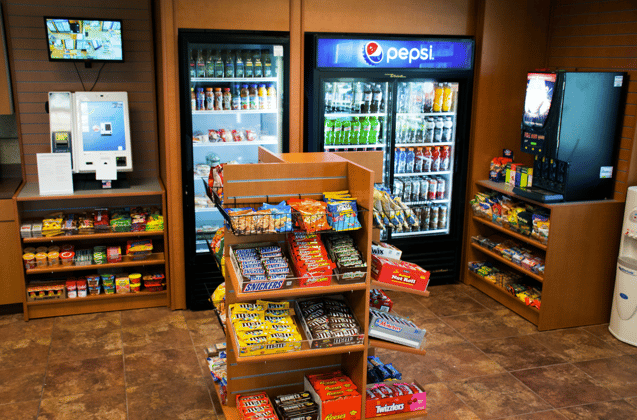The hospitality industry encompasses a broad range of businesses and services that provide accommodations, food and beverage services, entertainment, and customer experiences to travelers, tourists, and guests. It revolves around offering a welcoming and enjoyable environment for people away from their homes, whether for leisure, business, or other purposes. The industry's primary goal is to provide high-quality services and experiences that meet the needs and preferences of customers.
Key sectors within the hospitality industry include:
- Accommodation: This sector includes hotels, motels, resorts, bed and breakfasts, hostels, and other lodging establishments. Accommodation businesses provide a range of rooms and amenities to cater to various types of travelers.
- Food and Beverage: The food and beverage sector covers restaurants, cafes, bars, catering services, and even room service in hotels. It involves preparing and serving meals, beverages, and snacks to customers.
- Travel and Tourism: This sector includes travel agencies, tour operators, airlines, cruise lines, and other transportation services. It focuses on facilitating travel and offering experiences to tourists and travelers.
- Entertainment and Recreation: This sector involves providing entertainment and recreational activities to guests. This can include casinos, theme parks, nightclubs, theaters, and other entertainment venues.
- Event Planning and Management: Businesses in this sector organize and manage events, conferences, meetings, weddings, and other gatherings for both individuals and corporations.
- Spas and Wellness: Spa and wellness businesses offer relaxation and rejuvenation services, including massages, skincare treatments, fitness facilities, and wellness programs.
- Cultural and Heritage Sites: This sector involves preserving and promoting cultural and heritage sites, such as museums, historical landmarks, and art galleries.
Benefits for Businesses in Hospitality Industry
Micro markets can bring several benefits to the hospitality industry by enhancing the guest experience, offering convenience, and providing additional revenue opportunities. It also emphasizes providing exceptional customer service and memorable experiences to build loyalty and positive word-of-mouth referrals. Hospitality professionals need to have strong interpersonal skills, organizational abilities, and a deep understanding of customer needs and preferences. The industry's success relies on creating a welcoming and hospitable environment where guests feel comfortable and well taken care of during their stay or visit—aspects that a micro market could ensure are well taken care of.
Micro markets enhance the guest experience by providing flexibility, convenience, and choice. They cater to the needs of different types of travelers and contribute to the overall appeal and competitiveness of hotels within the hospitality industry. Micro markets can operate 24/7, providing guests with access to snacks, beverages, and convenience items even when other on-site dining options are closed. This is particularly valuable for guests arriving late at night or those with varying schedules.
Here are some benefits for the industry to consider:
Customization
Micro markets can be customized to reflect the hotel's branding and the preferences of its guests. This creates a more personalized and tailored experience. Micro markets offer a diverse selection of products, including fresh foods, healthy snacks, beverages, and specialty items. This caters to a wide range of guest preferences and dietary needs.
Healthy Choices
Micro markets often include healthier food and beverage options, which align with the wellness trends many travelers seek. This allows guests to make mindful choices while on the go.
Self-Service Experience
The self-checkout kiosks and touchscreens in micro markets provide a seamless and modern self-service experience, enhancing the overall guest experience. Guests can browse and select products at their own pace, making it convenient for those looking for quick refreshments or snacks between meals or meetings.
Enhanced Guest Satisfaction
By offering convenient and diverse options, micro markets contribute to guest satisfaction and can improve overall reviews and ratings. Micro markets align with the tech-savvy expectations of modern travelers. The self-checkout process and mobile app integration resonate well with tech-focused guests.

Complement On-Site Dining
Micro markets can complement existing on-site dining options. Guests have the flexibility to choose between sit-down meals and quick, self-serve options.
Meeting and Event Convenience
For hotels that host conferences, meetings, or events, micro markets can offer attendees easy access to snacks and refreshments throughout the day. Business travelers often appreciate the convenience of micro markets, especially when their schedules are tight. Offering a micro market can make a hotel more appealing to this demographic.
Promotion of Local Products
Micro markets provide an additional revenue stream for hotels. They can generate income through sales and potentially lead to increased guest spending. Hotels can use micro markets to showcase local products and artisanal items, providing guests with a taste of the region's culinary offerings.
Which Hospitality Industry Category is Yours?
Prioritizing guest experience is essential for the success and reputation of the hospitality industry. A positive guest experience not only leads to repeat business and customer loyalty but also generates positive word-of-mouth recommendations. Here are key ways the hospitality industry can prioritize and enhance the guest experience. Understanding your guests' preferences and needs means offering personalized services like a micro market. Collect data on the specific industry category you represent, such as dietary preferences, room preferences, and special occasions, to create tailored experiences representative of your brand or business. Hospitality, simply put, places the guest at the center of all operations and decisions. This requires actively listening to guest feedback, addressing concerns, and going the extra mile to exceed expectations.
Sounds familiar. No matter what category or niche your business belongs to, Bernick’s has a century-plus of prioritizing customer and consumer experience and consistently strives to exceed expectations. The hospitality industry, in turn, can continue to create lasting positive impressions that lead to guest loyalty, positive reviews, and a strong reputation within the market.


